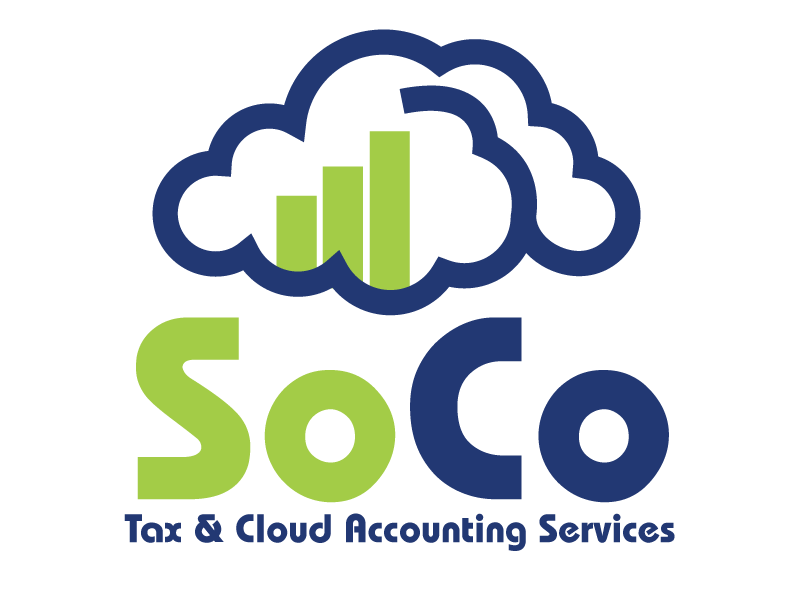5 Things Small Businesses Need to Know About Taxes
Not only is QuickBooks helpful when it comes to closing your books, and completing other accounting tasks, but they are constantly sharing helpful information to better understand necessary components of running a small business. April Maguire shares 5 things to know about federal taxes for small business owners. She warns readers that the IRS is constantly targeting small businesses for audits, and stresses the importance of paying attention to tax responsibilities early on to prevent liability issues in the future.
See what she has to say in order to be better prepare you.
1. Your Legal Entity Affects Your Tax Burden
Think that all small businesses endure the same tax burden? On the contrary, the legal entity you elect to form can have a tremendous effect on your tax liability throughout the years.
From sole proprietorships and LLCs, to S corporations and partnerships, there are various business types, each with its own benefits and limitations. For example, S corporations offer small business owners the advantage of paying taxes at the shareholder level, rather than being subject to higher corporate rates. However, a company of this kind must be limited to 100 shareholders and feature a single stock class. On the other hand, while C corporations can deduct a wider range of expenses and include hundreds of shareholders, these groups must contend with double taxation.
Do your research to determine what legal entity best suits your needs.
2. You Can Deduct More Than You Think
It’s no secret that small business owners have to learn ways of stretching their scant financial resources. From raw materials, to employee salaries, to business rent, to utilities, the various operational costs of a startup can be overwhelming. Fortunately, you may be able to deduct a number of expenses in order to minimize your tax burden while maximizing company profits. According to the IRS, businesses can deduct expenses deemed both ordinary and necessary. Ordinary expenses are common to your specific trade, meaning what’s reasonable for one company may not be relevant for another. On the other hand, necessary expenses are helpful (but not obligatory) in your field.
Some of the most common business deductions include rent on a business or home office, supplies, furniture and equipment, such as computers, copiers and fax machines. Additionally, small businesses can deduct costs associated with healthcare benefits for their employees.
Do your research to identify all possible deductions and give your company a leg-up come tax time.
3. Don’t Forget About Startup Expenses
Many brand-new startups make the mistake of thinking business expenses aren’t deductible until they are up and running. The truth is that the IRS allows small business owners to deduct a wide array of startup expenses before they open their doors to customers. Although startup expenses differ by industry, most business types deduct investigational costs related to researching markets and analyzing products.
Additionally, startups can deduct costs accumulated before they open for business, such as training employees, attending trade shows and seminars, locating suppliers and advertising to potential clients. While companies cannot deduct licensing and incorporation fees as startup expenses, these may be deductible as incorporation expenses.
It’s important to remember that startup founders can only deduct those expenses leading to the creation of a viable business entity. If you decide against forming your business, the above costs will be labeled as personal expenses, and you may not be able to deduct any of your costs.
4. You Must Make Estimated Payments
As a new small business owner, it’s important to pay taxes accurately and on time. However, you may not realize that the self-employed are responsible for making quarterly estimated tax payments throughout the year. While startup founders are excused from making estimated tax payments in the first year of operation, they are responsible for submitting accurate quarterly payments in the years to come.
Business owners filing as sole proprietors, partners and S-corporation shareholders must all make estimated tax payments if they anticipate owing $1000 or more for the tax year. Filing estimated tax payments for the first time? You may want to use last year’s income, tax credits and deductions to calculate your expected tax burden. Business owners who fail to submit at least 90% of the taxes they owe may be subject to penalties, so perform your due diligence to ensure you’re in the clear.
5. You’re Responsible for Paying Self-Employment Tax
If you’ve never owned your own business, then you are likely unaccustomed to paying self-employment taxes. Comprised of Social Security and Medicare taxes, self-employment tax is paid by workers whose income is not subject to employer withholding. As a self-employed person, you are responsible for both your own portion of the self-employment tax and the half typically paid by an employer. To ease the burden at tax time, small business owners should remember to deduct the employer-equivalent component of their self-employment tax. Business owners can claim half of what they pay in self-employment tax as an income tax deduction, so a $5,000 tax payment decreases income by $2,500.
Additionally, it’s important to take advantage of all possible business and startup expenses to limit net income and, by extension, your self-employment tax burden. Want to ensure your tax return is on the up-and-up? You may want to consider hiring a tax advisor to help you maximize deductions while ensuring your startup is meeting its tax burden. Not only does working with a professional safeguard your business and personal wealth, but it also allows you to focus on what matters: building your company into a successful operation.
Source: https://quickbooks.intuit.com/r/taxes/new-small-business-5-things-to-know-about-federal-income-taxes/
